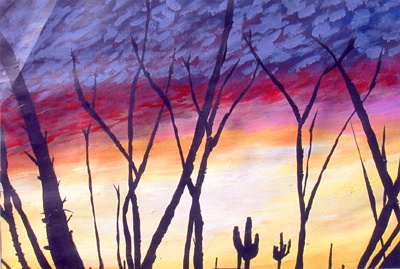All Nonfiction
- Bullying
- Books
- Academic
- Author Interviews
- Celebrity interviews
- College Articles
- College Essays
- Educator of the Year
- Heroes
- Interviews
- Memoir
- Personal Experience
- Sports
- Travel & Culture
All Opinions
- Bullying
- Current Events / Politics
- Discrimination
- Drugs / Alcohol / Smoking
- Entertainment / Celebrities
- Environment
- Love / Relationships
- Movies / Music / TV
- Pop Culture / Trends
- School / College
- Social Issues / Civics
- Spirituality / Religion
- Sports / Hobbies
All Hot Topics
- Bullying
- Community Service
- Environment
- Health
- Letters to the Editor
- Pride & Prejudice
- What Matters
- Back
Summer Guide
- Program Links
- Program Reviews
- Back
College Guide
- College Links
- College Reviews
- College Essays
- College Articles
- Back
The Right to Choose
“What is my religion?” I remember asking my parents this question when I was about eight years old. Sure, we celebrated Christmas every year and my grandmother would occasionally take me to church with her to light a candle and whisper a prayer to an iconic face that was vaguely familiar to me, but, besides that, my family did not engage in religious traditions. Although my parents were both christened Greek Orthodox, neither of them was religious. I, on the other hand, had not been baptized at all. They said I did not have a religion—that I could choose one for myself.
This, however, is easier said than done—though I was thrilled to be given such a liberty as a young kid (and fortunate, as I came to discover). Religion seemed like a wonderful idea to me—putting one’s faith into a higher power, having explanations for obscurities and natural phenomena, believing in something more than reality—but I could not bring myself to understand the beliefs of many religions; they seemed rather illogical to me. I could not make sense of these abstruse belief systems that tried to explain the origins of our universe, nor did I believe the histories of these religions: that descendents of God provided people with instructions from the man Himself or that on Judgment Day, we will be saved by one of these very descendents. I did not see the purpose of making pilgrimages to a holy city nor did I accept the notion of a pantheon of gods representing forms of a single divinity.
Still, I was fortunate because not everyone had this “right”—the right to choose his own faith. As I delved further into the ideas of religions, I began learning of the terrors religion was capable of. I learned of fanaticism and how religion not only creates barriers between people but also brings about conflict, disunity, and bloodshed. In September 2001, I learned of extremists taking their beliefs to radical levels and, encouraged by their conception of God’s expectations, flying two planes into the Twin Towers, as the world trembled with fear. Innocent lives were taken, and I questioned the existence and the motives of the elusive, omniscient idea we call “God.” If He was so holy and good, why did He inspire segregation amongst peoples, inequality between men, hatred? Why did some kill in His name?
I believe religious conflict emanates from organized religion—people not having a choice when it comes to deciding on a faith—having others decide for them, mostly at a very early age. This kind of piety and forcing one's belief system onto others does not allow people to decide for themselves what it is they believe. Instead, they become brainwashed and, sometimes, fanatics. Many do not even know the true origins of their religion nor do they understand much of it. They simply take the word of a little black book that says that, three thousand years ago, an ordinary man claimed to be descendent and to have received instructions from God. Many of these people do not take the time to truly open their minds to other beliefs or question their own. While it is easy to accept a religion without genuinely contemplating it, one must decide for herself, seeking answers with explanations and not just being content with what she is told to believe.
It is for these very reasons that I am glad my parents chose not to baptize me, chose not to choose for me, chose to let me decide and take control of my own faith and resolve what religion I believe in and whether or not I believe in the obscure idea of “God.” So what is my religion, you ask? What do I choose—what do I believe? I believe in having choices. I believe that everyone should be given an opportunity to make up his own mind about something so complex and personal as faith. I believe that our decisions make us who we are, create the people we will become, and shape our destiny. And for the moment, I believe in no religion—no barriers, no inequality, no bloodshed—just the right to choose.

Similar Articles
JOIN THE DISCUSSION
This article has 0 comments.
